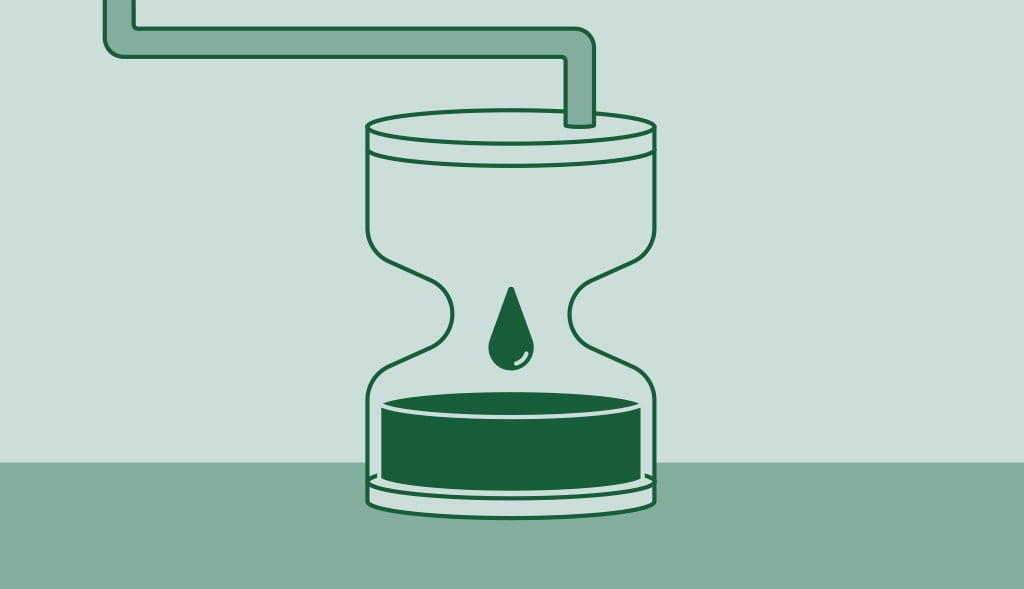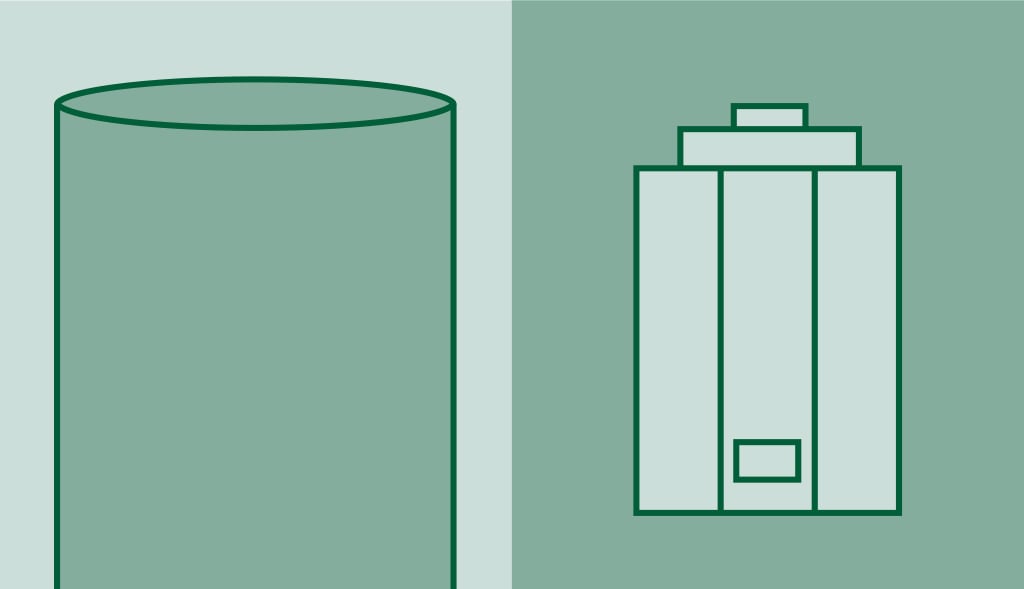Choosing the Best Water Heater for Your Home

Investing in the best water heater for your home that suits your specific needs is crucial. Water heaters come in different types, including gas water heaters, electric tankless water heaters, and traditional tank water heaters.
This guide will help you navigate the world of water heating, covering essential factors like energy efficiency, water temperature, heating elements, and more, so you can make an informed decision about the best water heater for you.
The Basics of Water Heaters
A water heater’s job is to convert energy into heat and transfer that heat to water. It’s connected to the incoming water supply and warms the bottom of the tank where the heating element is located. Depending on the design and type of heater, a storage tank may hold and continuously heat water, or the unit may heat water on demand.
Tank Water Heaters
The most common type of water heater in homes today is the tank water heater. They have large storage tanks that hold anywhere from 20 to 80 gallons of hot water. A tank water heater maintains hot water in the storage tank until it’s needed. They are available in both gas and electric models. A good tank water heater can deliver up to several gallons of hot water in the first hour.
Tankless Water Heaters
Unlike traditional tank models, tankless water heaters heat water only as it’s needed, providing an endless supply of hot water without the need for a storage tank. They come in both gas and electric versions. Electric tankless water heaters are typically smaller and suitable for single-point uses, while gas units can provide a higher flow rate, making them ideal for whole-house applications.
Tankless water heater normally last longer than regular tank water heater.
Key Features of the Best Water Heaters
The best water heater should provide a balance of efficiency, convenience, and longevity. Below are some of the features to consider when choosing the best water heater for your home.
Energy Efficiency
When selecting the best water heater for your home, one of the first things to consider is energy efficiency. The Uniform Energy Factor (UEF) is a measure of a water heater’s efficiency. Higher UEF values mean the unit is more energy efficient.
Gallons Per Minute and First-Hour Rating
For tankless water heaters, the flow rate or gallons per minute (GPM) indicates how many gallons of hot water the unit can produce per minute. The higher the GPM, the more hot water the unit can deliver.
For tank water heaters, consider the First-Hour Rating (FHR), which measures how many gallons of hot water the heater can supply per hour, starting with a full tank. A higher FHR means the unit can deliver more hot water in the first hour.
Heat Exchanger and Heating Elements
A heat exchanger transfers heat from one fluid (in this case, either gas or electricity) to your water. Tankless water heaters generally use heat exchangers, while traditional tank water heaters use heating elements.
In electric water heaters, the heating elements are immersed directly into the water, converting electrical energy into heat. In gas water heaters, a gas burner warms the bottom of the tank and heats the water.
Understanding Water Heater Tank Quality and Glass Lining
When purchasing a water heater, the quality of the tank is a critical factor to consider. The tank houses your hot water until you’re ready to use it, and its design and construction significantly influence the efficiency and longevity of your water heater.
The Importance of Tank Quality
High-quality water heater tanks are designed to withstand the constant stress of heating and cooling cycles, water pressure, and the corrosive nature of water. These tanks are typically made of high-strength steel and can resist the wear and tear of daily use, ensuring your water heater remains operational for many years.
However, even the highest quality steel tanks are susceptible to tank corrosion, which can cause water heater leaks and ultimately lead to the failure of your tank. To prevent this, manufacturers use various protective measures, including glass lining and anode rods.
The Role of Glass Lining
One of the most common protective measures is the application of a glass (or porcelain enamel) lining inside the water heater tank. The glass lining serves as a barrier between the steel tank and the water, preventing direct contact and thus minimizing the risk of rust and corrosion.
During the manufacturing process, the glass lining is sprayed into the tank and then heated to high temperatures, causing the lining to adhere to the tank and form a hard, protective shell. This lining helps to prolong the life of the tank and maintain the quality of your hot water.
However, no glass lining is perfect, and tiny cracks or imperfections can occur during the heating process or due to mechanical stress. These imperfections expose small areas of the tank to water, making them susceptible to corrosion.
To protect these exposed areas, manufacturers use anode rods, which corrode in place of the steel tank. The addition of a powered anode rod, like the Corro-Protec, can offer superior protection, significantly extending the lifespan of your water heater and keeping your hot water clean and clear.
Vacation Mode
Some modern water heaters come with a vacation mode, which lowers the water temperature when you’re away to save energy. This feature can help to reduce your energy bills without you having to manually turn down your water heater.
Gas Water Heaters Vs. Electric Water Heaters
While both gas and electric water heaters have their strengths and weaknesses, your choice between the two will often depend on what your home is set up for and your personal preferences.
Gas Water Heaters
Gas water heaters are popular because they can heat water quickly and are less affected by cold weather. They are typically more expensive upfront than electric models but are often cheaper to operate since gas is usually less expensive than electricity. However, gas heaters require venting, which can add to installation costs. They are also more complex, which can lead to more expensive repairs.
Electric Water Heaters
Electric water heaters are generally more energy-efficient than gas units, and they’re safer since they don’t carry the risk of gas leaks. They’re also less expensive to purchase and install, as they don’t require venting. However, they usually have higher operating costs due to the higher cost of electricity compared to gas. They also heat water more slowly and can be significantly affected by power outages.
Top Water Heater Brands
Choosing a trusted and reputable brand can ensure your water heater’s quality, performance, and durability. Here are some of the top water heater brands renowned for their exceptional products and customer service.
Rheem is a leading global water heating brand known for its innovative, high-efficiency water heaters. They offer a wide variety of models, including gas, electric, tankless, solar, and hybrid heat pump water heaters, providing solutions for both residential and commercial uses.
Pros:
- Variety of models for different needs and budgets
- Excellent customer service
- High-quality products known for their durability
Cons:
- Some models can be expensive
- Installation may require professional help
A.O. Smith has been in the water heating industry for over 80 years and is known for its high-quality, efficient, and durable products. The company offers a broad range of water heaters, including electric, gas, tankless, and even solar options.
Pros:
- Wide product range
- High energy-efficiency ratings
- Great warranty coverage
Cons:
- Some customers report issues with customer service
- Higher-end models can be expensive
Bradford White is another well-respected name in the water heating industry. They produce a variety of water heaters, from gas and electric to tankless and solar. They are particularly noted for their built-to-last quality.
Pros:
- Products are known for their longevity
- Broad range of models
- Excellent efficiency ratings
Cons:
- Fewer options for purchasing directly, often requiring a professional installer
- Some models can be pricey
EcoSmart
EcoSmart specializes in electric tankless water heaters known for their compact design, energy efficiency, and affordability. Their heaters are designed to heat water on demand, reducing energy costs by up to 50%.
Pros:
- Cost-effective and energy-efficient
- Compact design is ideal for smaller homes or apartments
- Easy to install and maintain
Cons:
- Limited to electric models
- May not be suitable for large homes or high demand
Choosing the right brand for your water heater is crucial. Consider factors like the brand’s reputation, customer service, product range, efficiency ratings, and warranty coverage. A high-quality water heater from a reputable brand can be a worthy investment, providing you with a reliable hot water supply for years to come.
Importance of Maintenance
Proper and regular maintenance is key to extending the life of your water heater, no matter which type you choose. Over time, mineral deposits can build up in the tank, reducing its efficiency and leading to potential damage.
Regular Anode Rod Inspection and Replacement
An integral part of water heater maintenance involves regular inspection and replacement of the anode rod. This rod is made from magnesium or aluminum and protects your water heater tank from corrosion. It acts as a “sacrificial” rod, corroding in place of your tank. However, once the anode rod has corroded completely, the tank will start corroding, drastically reducing your water heater’s lifespan.
Corro-Protec powered anode rods offer a permanent solution to this problem. Unlike traditional anode rods that corrode over time, the Corro-Protec rod uses a small amount of electricity to create a protective layer on your water heater’s tank, inhibiting corrosion. This powered rod doesn’t deplete over time, providing constant protection for your tank.

{{options.name}} 4.88/5
Installing a Corro-Protec anode rod can extend the life of your water heater, improve its efficiency, and save you the time and cost of replacing traditional sacrificial anodes. It’s an innovative, highly effective solution for maintaining your water heater and protecting it from the destructive effects of corrosion.
Regular Flushing
Flushing your water heater at least once a year can help to remove these deposits and improve efficiency. This process involves draining the tank, letting fresh water flow in to flush out the sediment.
Checking the Pressure Relief Valve
Another important aspect of maintenance is checking the pressure relief valve, which releases excess pressure from the tank to prevent it from bursting. If the valve is malfunctioning, it could lead to dangerous levels of pressure building up in the tank.
The Future of Water Heating
With growing concerns about the environment and energy efficiency, the future of water heating looks promising, with new technologies and advancements on the horizon.
Solar Water Heaters
Solar water heaters use the sun’s energy to heat water, making them an eco-friendly and potentially cost-saving option. They can be used in any climate and come in two types: active, which has circulating pumps and controls, and passive, which doesn’t.
Heat Pump Water Heaters
Heat pump water heaters, also known as hybrid water heaters, are incredibly energy-efficient. They work by moving heat from the air or ground to heat your water, using electricity only to move heat rather than to generate it.
Condensing Water Heaters
For homes using natural gas, condensing water heaters can be a highly efficient option. They work by capturing heat from the flue gases, a process that would usually be wasted, and using it to heat the water.
Choosing the best water heater for your needs and preferences can be a significant decision. Consider all the available options and features, weigh the pros and cons, and make an informed decision. Remember that investing in the right water heater can enhance your home’s comfort, boost its value, and lead to substantial energy savings over time.
Final Thoughts
Choosing the best water heater for your home can be a daunting task with the multitude of options available. However, by considering factors such as energy efficiency, flow rate or FHR, quality of heating elements and the tank, as well as additional features like vacation mode, you can find a water heater that fits your specific requirements. Always consider the pros and cons of different types of water heaters before making your final decision. And remember, a good water heater is an investment that can increase not only your comfort but also the value of your home.





When choosing your water heater; make it last for real!
Choosing the right water heater can be tedious. There are plenty of choices and options available for both residential and commercial applications.
However, one thing is simple but paramount when selecting the right hot water heater: you must protect the entire shell from corrosion, limescale and sulfur smell.
The solution is the powered anode which will solve all three. Get it here! Install something that will last and limit the number of discarded heaters in landfills. The environment deserves our support.
Blog
How Long Do Water Heaters Last? Much Shorter Than it Could!
How long do water heaters last is a very complex and difficult question to answer. We live in a society that increasingly understands the environmental […]
Tank vs Tankless Water Heater: Which Is the Best Water Heater for You?
You need hot water for everything from doing laundry and dishes to enjoying a nice bath or shower at the end of a long day. […]

